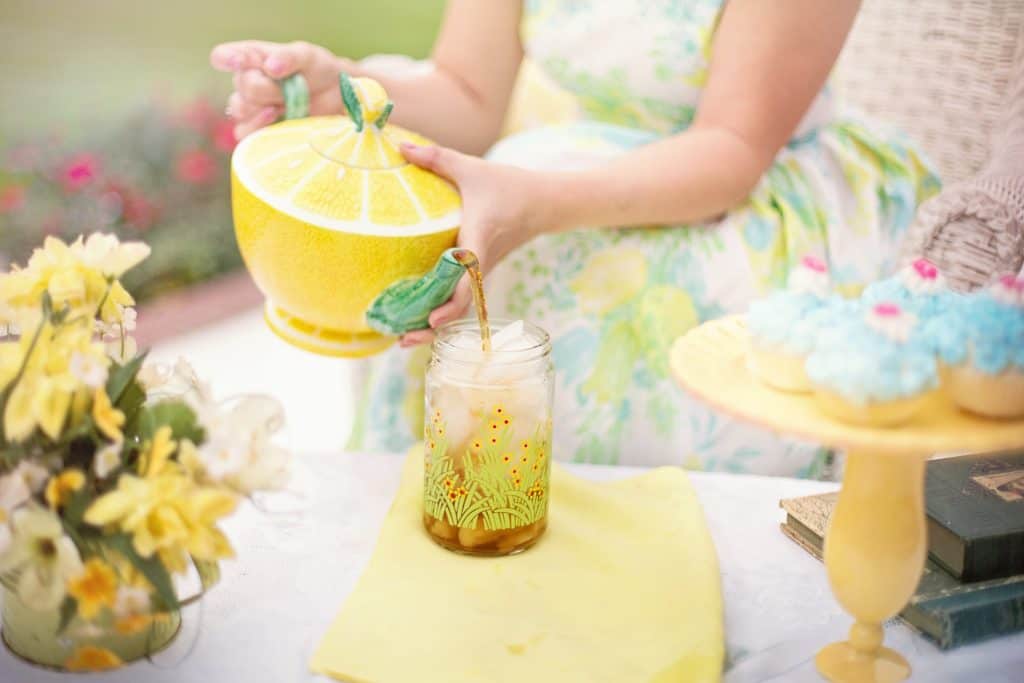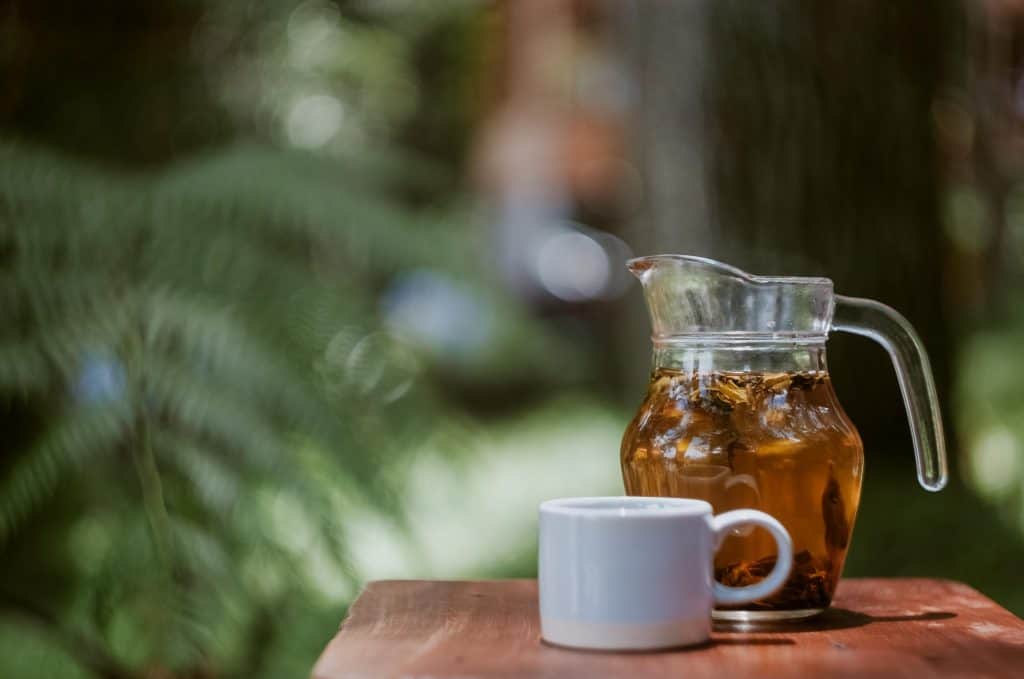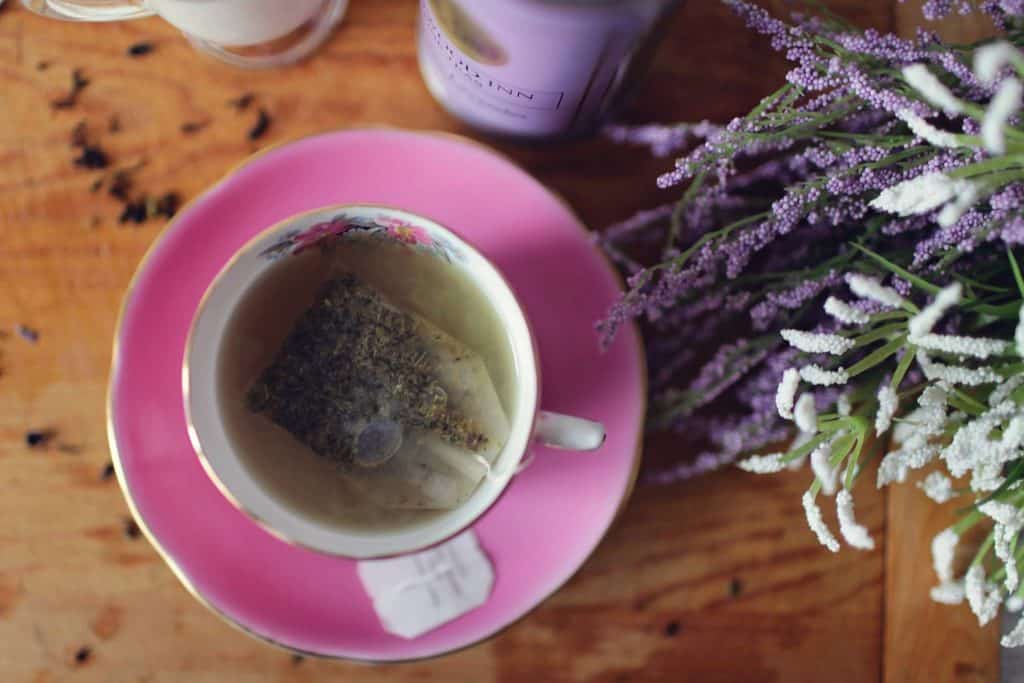If you’re looking for something refreshing to sip on, you might be wondering,can I brew tea in cold water?
And is it safe?
The answer is yes, and yes.

Not only are cold brew teas easy to make and safe, but they’re also incredibly delicious, versatile, and a great way to extract the many benefits found in tea leaves. While they can be enjoyed plain, adding herbs, spices and different syrups can also enhance the flavor of your brew.
Let’s learn more about cold brewed tea, why it’s growing in popularity, and settle any doubts you might have about using cold water to make a tea.
Contents
What is cold brewed tea?

Cold brewed teas are made by adding tea leaves, tea bags, or tea sachets to cold (or room temperature) water and letting it sit for some time.
Unlike hot teas, which are usually steeped only for a few minutes, cold brew teas are typically brewed for anywhere between 3 – 24 hours and stored in the fridge. This slow brewing process in cold water allows the compounds in the tea leaves to diffuse slowly and results in a sweeter and less bitter beverage than hot brewed tea.
How to make cold brew tea
To prepare cold brewed tea, all you need to do is combine tea leaves of your choice (loose leaf or in tea bags), and cold water. You may use a cup or pitcher, or a french press. Let the leaves steep in the fridge for 3 – 24 hours, then strain out the leaves, and enjoy.
Here’s a video by everydayfood on how to make cold brew tea using tea bags.
If you like your tea sweet, use agave, maple, or simple and flavored syrups a shot. These tend to dissolve better in cold water. And if you want to add a little kick to your tea, you can experiment with cinammon, mint, citrus, or even alcohol.
Why is cold brew tea so popular?
Cold brew teas have become increasingly popular in recent years for several reasons.
1. They’re convenient
Cold brews are super easy to make and can be prepared in advance and stored in the refrigerator for later; this makes it an ideal choice for busy parents or people constantly on the go.
2. They keep you hydrated
Because of its high water content and chilly temperature, drinking cold brewed tea can help prevent the body from overheating. Making it perfect for hot summer days or recovery from intense physical activities.
3. They are versatile
From classic cold brewed black teas to fruity herbal teas, there are many flavors to explore.
4. They can be healthy
Cold brew teas contain compounds like antioxidants and L-theanine and are lower in caffeine than traditional hot teas or coffee, which is excellent for those trying to moderate their caffeine and caloric intake.
Which teas can you cold brew?

With so many teas to pick from, you might be wondering, which teas can you cold brew? And are there better options?
The answer is – it comes down to preference.
If you like strong and intense flavors, go with black teas. Black teas can have higher caffeine concentrations and are more “tannic” in nature, which can make tea taste bitter. If you’re looking for something more vegetal or umami, try green and pu-erh teas. For lighter and more fun flavors, stick with oolong or herbal teas.
Read this next: Black tea vs. green tea
Does steep time affect a cold brew’s flavor?
Yes. The flavor of tea is influenced by the interaction between water and various compounds found in tea leaves like tannins, caffeine, and other aromatic compounds.
A longer steep time will generally result in a more intense tea flavor, while a shorter steep time will give you a lighter flavor.
How long should you cold steep tea for?
The best way to determine how long to steep tea is by tasting it at various intervals in the steeping process. Why? Because depending on your tea, ingredients, and methods of preparation used, you might end up with something very different.
As a general rule of thumb, white and herbal teas like mint, rosehip, camomile, and hibiscus can withstand longer brewing before they become bitter. Oolong and pu-erh teas can also be left to brew for longer periods. But black and particularly green teas taste better if they’re not left to steep for too long.
Don’t know where to start?
Here’s a quick steeping guide:
- Black tea: 6-12 hours
- Green Tea: 3-6 hours
- Oolong Tea: 6-8 hours
- Pu-erh Tea: 8 – 12 hours
- Herbal Teas: 6 – 12 hours
Tip: If you’re preparing your brew batches, start with 2-4 teaspoons of loose-leaf tea or 2-3 tea bags for 1L of water.
Is steeping tea in cold water safe?

If you’re concerned about safety issues with steeping tea in cold water, don’t be.
While cold-steeped tea might not be subjected to the same high temperatures as hot-steeped tea, which can kill bacteria, tea facilities do a great job adhering to quality controls and hygiene standards to ensure that packaged teas are free of bacteria.
However, to avoid further health risks, always follow safe storage and preparation methods when making and storing tea.
How long does cold brewed tea last?
Cold brewed teas can last in the fridge for about a week if stored in a clean, air tight bottle – I like using the Ikea bottles with stoppers. But if you’re storing it in the freezer, it can last even longer.
Because compounds like tannins and caffeine diffuse slowly in cold water, it’s natural for your tea to taste a little more bitter or astringent with time.
What’s not natural? Mold, and any funky smells and tastes. So if you notice any of these, dispose of your tea immediately and make yourself a fresh cup.
Wrapping it up
Making cold brew tea is an incredibly easy process.
All you need is tea, cold water, and a container of some sort. While you might have to play around with steeping times and ingredients you love, cold brews are safe to make and a versatile beverage with so many health benefits.
Leave a Reply